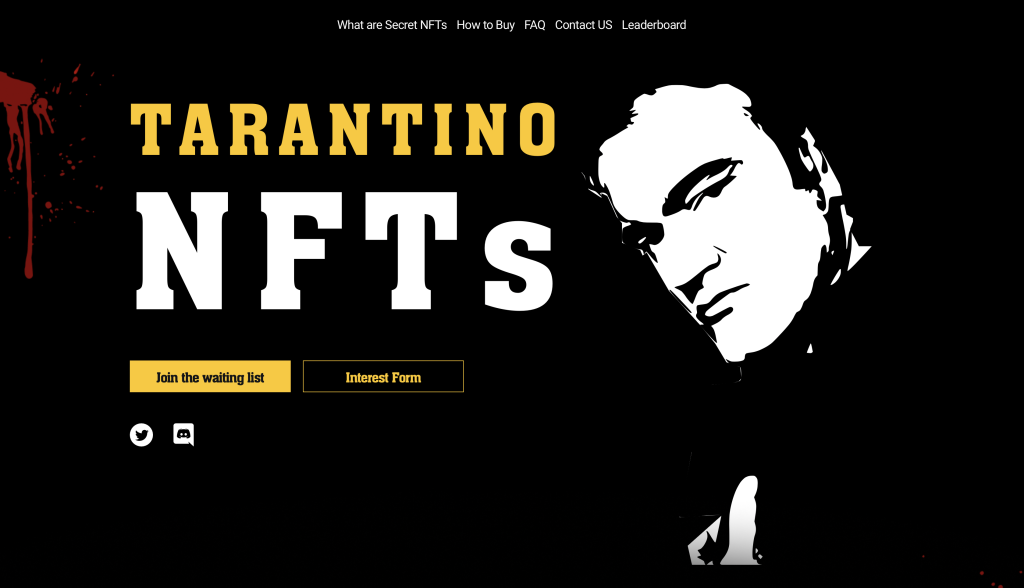NFTs with license information could solve Tarantino’s lawsuit

The idea: Pulp Fiction NFTs
Quentin Tarantino is releasing 7 NFTs, each of them containing a scene from the original, unedited script of Pulp Fiction. Not only the handwritten screenplay, with typos, doodles and all, but also some audio commentary from the author.
These will be ‘Secret NFTs’, which means that their contents are encrypted and will only be revealed to each NFT’s owner.
If you’d like to know more, there’s an official website with a waiting list you can join to enter the auction: https://tarantinonfts.com
The Lawsuit
But with this announcement has come a lawsuit by Miramax, the distribution company that still owns the movie’s exploitation rights. In this document, they accuse Tarantino of breach of contract, copyright infringement, trademark infringement, and unfair competition.
Tarantino still owns some rights over the movie, though. For example, he still has the right to create derivative works out of it such as novels, comic books, spinoffs… Here’s the quote from the lawsuit, and we’re highlighting parts that could protect Tarantino’s rights to sell these NFTs:
“Tarantino’s Reserved Rights were limited to the “soundtrack album, music publishing, live performance, print publication (including without limitation screenplay publication, ‘making of’ books, comic books and novelization, in audio and electronic formats as well, as applicable), interactive media, theatrical and television sequel and remake rights, and television series and spinoff rights.”
(Reference link)
How NFTs with licensing information could solve it
NFTs didn’t exist when the original contract was signed, so this is all still speculative and will depend on the contract’s interpretation during trial, but including very clear licensing information in the NFT itself could be a solution. This would be a way to make explicit, for example, that the NFT owner has a limited, personal-use license over the NFT’s content, and they can’t do certain things such as distributing copies of it. The license would have to be written in a way compatible with the original contract, protecting the interests of Miramax as well.
Whenever someone creates an NFT through Safe Creative’s solution, they get the permanent IPFS page with its terms and conditions. This page should include all the precise licensing details, to prevent legal uncertainties and misunderstandings. In the end, it’s a combination of elements that can reduce the amount of future disputes: blockchain NFT’s transparency, IPFS, and the counselling of expert lawyers to write a comprehensive license.
More information: Safe Creative and NFTs with copyright information.
